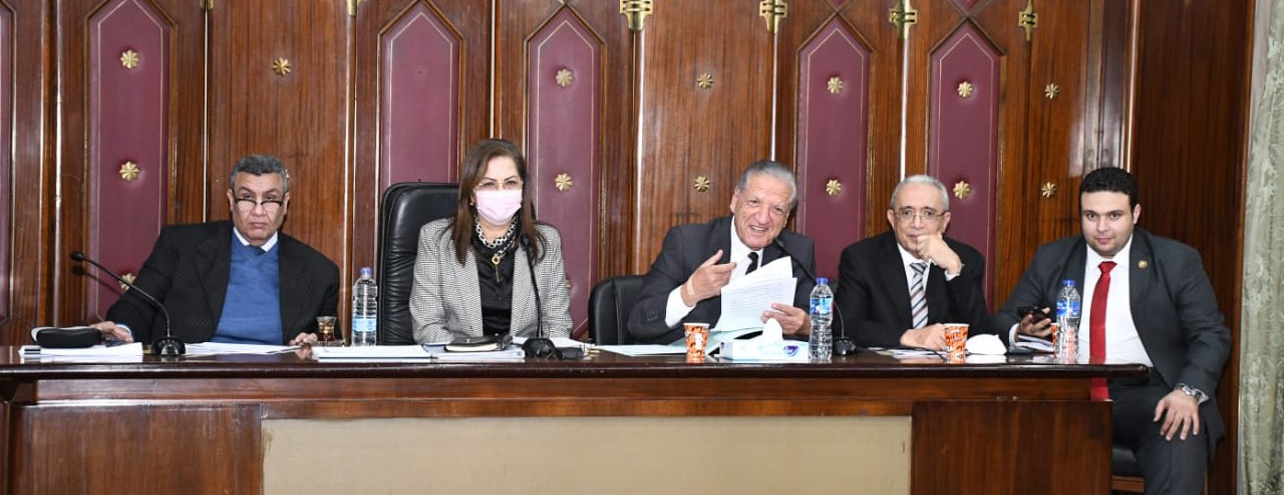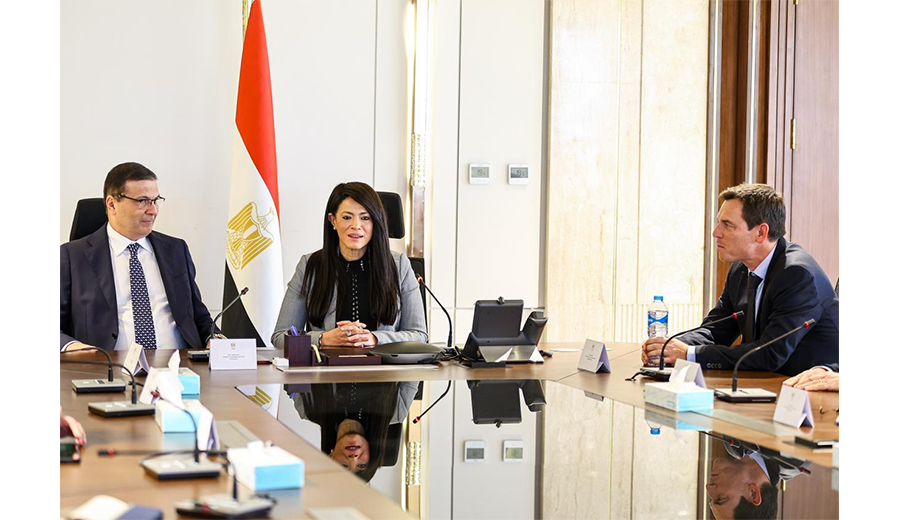Before the Parliament's Plan and Budget Committee: Planning Minister reviews the ministry's position regarding the implementation of the government program

09 February 2021
Dr. Hala El-Said, Minister of Planning and Economic Development, participated today in the meeting of the Plan and Budget Committee in the Parliament to discuss the ministry's position regarding the implementation of the government program.
Dr. Hala El-Said , Minister of Planning and Economic Development, pointed out that within the framework of increasing the volume of investments and the balances that the Egyptian state makes in terms of reducing the deficit and reducing the debt while seeking to increase investments that contribute to increasing job opportunities.El-Said added that the preparation of a report has started on the projects that have already been completed and have been delivered.El-Said explained that despite the increase in the growth rate, it is very important that this increase be linked to a decrease in unemployment rates and stability in the general level of prices.El-Said stressed the necessity of observing all dimensions at the same time in terms of a continuous increase in growth rates with a decrease in unemployment and an increase in employment opportunities with the stability of the general level of prices and inflation rates.El-Said added that it has been observed over the years that despite the low unemployment, there is a high unemployment rate among university graduates, so the concerned ministry is always supported to think of other methods to address the crisis.
She drew to technological colleges, private universities, and technical schools linked to the labor market, noting that the labor market always needs to develop, so there is no need for traditional studies.El-Said addressed the discussion on the pillar of diversifying state resources, she explained that all ambitions are directed towards achieving more investments, which cannot be done without diversifying the state's resources, pointing out that this was the motivation behind the establishment of The Sovereign Fund of Egypt (TSFE).El-Said explained that the TSFE represents a huge investment entity that can enter into international, local, and regional partnerships.
Regarding the role of the Ministry of Planning and Economic Development, El-Said explained that the ministry handed over the administrative reform file in December 2019 to Cabinet and the Ministry of Communications, following up that the Ministry of Planning still maintains the section on capacity building and the part on the databases related to development planning and the birth and death system.
El-Said added that in all capacity building programs, a training base is set up for all employees to better know the investment that has been invested in each of them and direct it, and about evidence-based planning.
El-Said explained that the last period is taking advantage of the number of surveys and field research with the Central Agency for Public Mobilization and Statistics ((CAPMAS), following up that the most famous of these surveys is the survey of income and spending, which shows poverty indicators.El-Said added that the poverty map will be announced within two weeks, in addition to the local development survey and the last economic census survey on companies in Egypt, their number, and informal employment.El-Said explained that the system of spatial variables allows to see projects on the ground through the satellite image and to follow developments in projects with pictures to follow up on the size of achievement in them.About the measures taken in light of the Corona pandemic, El-Said referred to the rationalization of spending in addition to directing a large part of the investments to the most priority sectors and projects for public works, such as a project lining canals because of their important environmental and economic dimension.El-Said added that coordination has been made with the National Council for Wages with various authorities to find out the problems facing the institutions.









